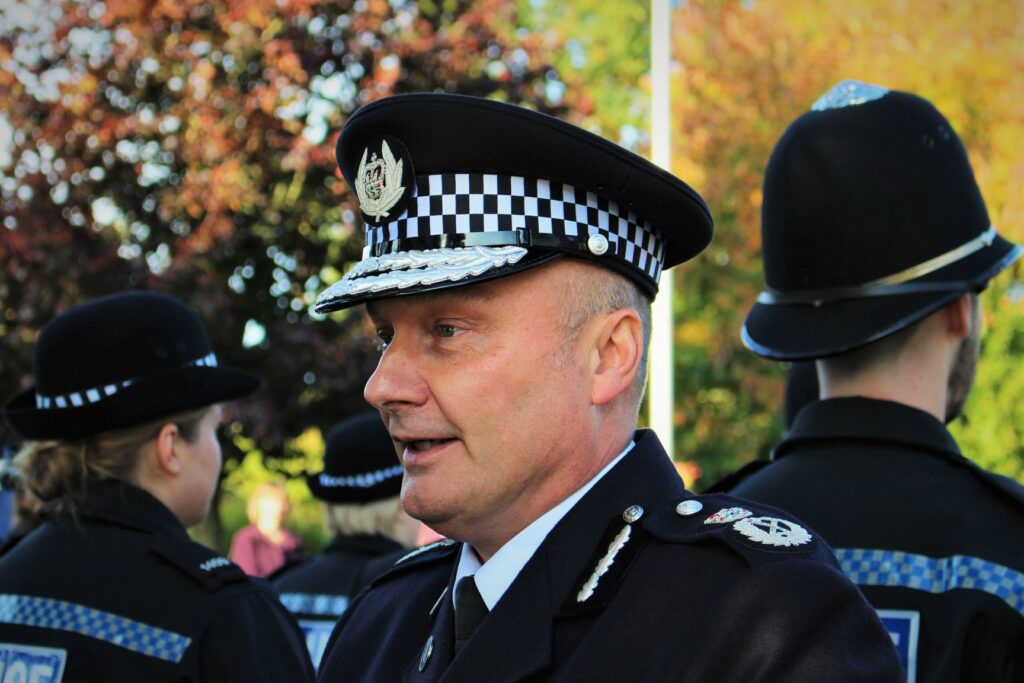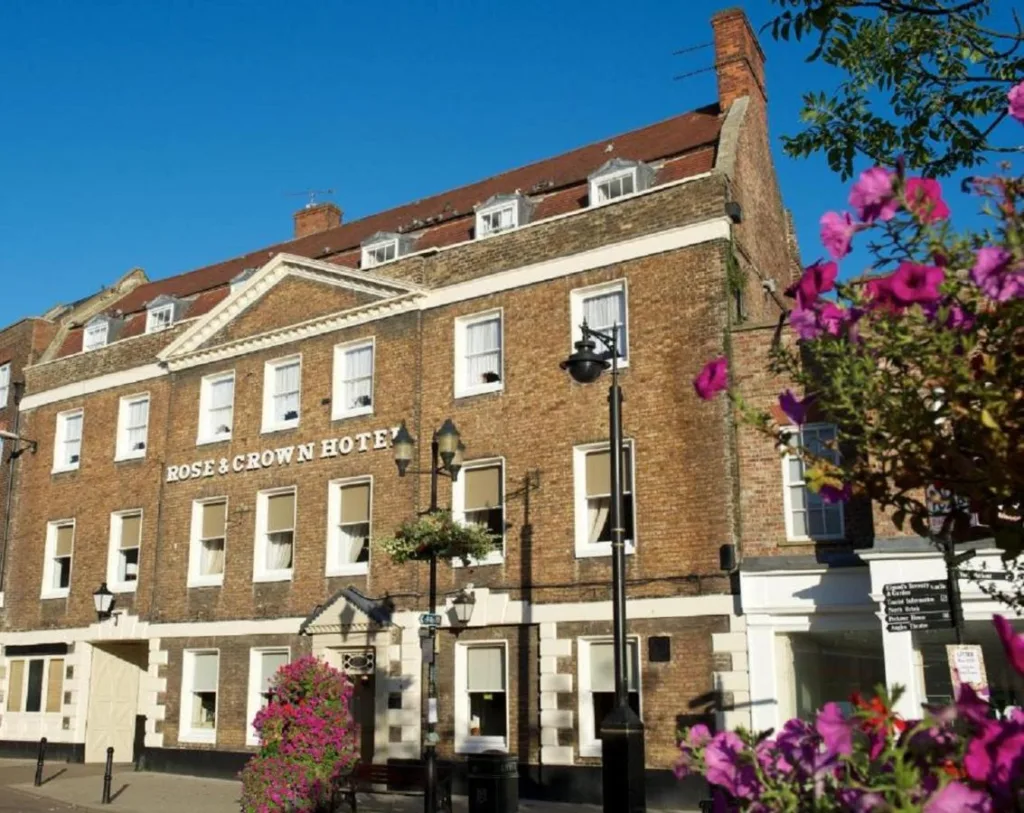An inspector and five colleagues have been found guilty of gross misconduct after sharing racist, misogynistic, and discriminatory content in a private chat. Chief officers called the messages “appalling and deeply damaging.” CambsNews special report.
A senior Cambridgeshire police inspector has been dismissed for gross misconduct after sending and tolerating racist, misogynistic, and discriminatory messages in a WhatsApp group involving five other officers — all of whom were also dismissed earlier this year.
Inspector Simon Berrill was found to have posted “deeply offensive and insulting” messages in the private group, which also included comments about colleagues, police data and offensive jokes targeting people based on race, religion, disability, sex, and sexual orientation.
The case marks the final chapter in a misconduct scandal that has rocked Cambridgeshire Constabulary, exposing a toxic online culture among a group of experienced officers, including several in supervisory positions.
The messages, shared between April 2020 and February 2022, have now led to six dismissals in total — one of the largest collective misconduct cases in the force’s history.
Senior officer dismissed without notice
At an accelerated misconduct hearing held today (7 October), Inspector Berrill appeared before the newly appointed Chief Constable Simon Megicks, who ruled that the inspector’s actions constituted gross misconduct.
Berrill was dismissed without notice.
Chief Constable Megicks said the ruling sent a “clear and consistent message” that such conduct would not be tolerated: “Discriminatory behaviour, whether on or off duty, will not be tolerated. We will take action, and we will continue to uphold the values our communities expect and deserve,” he said.
“The comments made by these former officers were appalling, offensive and deeply damaging — not only to those targeted, but to the integrity of policing itself.”
The hearing found that Berrill had made around 90 grossly offensive posts over a two-and-a-half-month period in 2020, while serving as a sergeant. Despite recognising the risks — even warning in one message that his posts “could be a job loss when PSD [Professional Standards Department] finally seize our phones” — he continued to post, showing what the chief constable described as “deliberate and intentional” disregard for professional standards.
Megicks said that Berrill’s rank and experience only worsened the gravity of his behaviour:
“As a supervising officer, he had an enhanced responsibility to act with integrity and leadership. Instead, he was an active contributor to a culture of disrespect and prejudice. This is completely unacceptable.”
The inspector’s posts included racially, sexually, and disability-discriminatory comments, as well as remarks about female officers and colleagues.
Megicks concluded that dismissal was “the only appropriate sanction” to maintain public trust:
“It is imperative that police officers and staff provide the highest levels of service to the public, with respect and empathy. Nothing can excuse these sorts of thoughts or comments.”
Five others dismissed in August
Today’s ruling follows an earlier accelerated misconduct hearing on 18 August, chaired by former Chief Constable Nick Dean, in which five other officers — Sergeants Nathaniel Richards, Kristian Lutz, and Connor Hall, PC John House, and a fifth officer granted anonymity — were also found to have committed gross misconduct.
All five were based in Peterborough and had taken part in the same WhatsApp group, titled “BDA”. The group had operated for nearly two years and contained hundreds of offensive messages.
The August hearing found that the officers’ posts were “racist, misogynistic, inappropriate, abusive to colleagues and the public, and overall, grossly offensive.”
All five had resigned from the force before the hearing, but Dean ruled that each would have been dismissed without notice had they still been serving. All six officers are now being placed on the College of Policing’s barred list, preventing them from working in policing again.
Dean’s ruling was damning: “This case centres on a group WhatsApp chat that was grossly offensive. Every officer had a duty to stop the chat; none did so. There is no place in policing for such attitudes.”
Dean highlighted the sustained nature of the misconduct and the failure of senior officers within the group to intervene: “Two of the former officers held supervisory ranks and should have set the example. Instead, they were the main contributors. Every officer had a duty to challenge, yet none did. The public expects police officers to act with professionalism, both on and off duty. These officers failed that standard.”

The group’s messages, he said, “caused serious harm to public confidence in policing” and represented “a fundamental breach of the trust placed in police officers by the communities they serve.”
“A culture of contempt”
Both hearings exposed what senior leaders described as a “culture of contempt” and discriminatory behaviour that undermined internal morale and public trust.
In his findings, Chief Constable Megicks said the case illustrated “how damaging even private communications can be when they expose underlying prejudice and disrespect.”
He dismissed arguments that the WhatsApp group was “private banter,” calling such justifications “utterly irrelevant.”
“The content of the chat is a window into the underlying attitudes of the participating officers,” he said.
“The perception that police officers privately harbour such offensive views undermines public confidence and damages the reputation of the service as a whole.”
Both chief constables emphasised that privacy is no defence when police officers engage in discriminatory or abusive speech, noting that the College of Policing’s guidance treats discrimination based on protected characteristics as inherently serious misconduct.
Harm to colleagues and community
The misconduct panel found that the offensive messages not only targeted members of the public but also directly insulted colleagues, eroding team unity and morale within the force.
Berrill’s posts and others in the group included mocking references to female officers and those with disabilities, as well as inappropriate requests to view body-worn video footage for “reasons of prurience and personal gratification.”
The impact, said Chief Constable Megicks, extended far beyond those immediately affected: “The police service has already seen significant erosion of public trust, particularly among women, disabled people, and minority communities. For officers to perpetuate such views only deepens that divide.”
Lack of accountability among experienced officers
The hearings revealed a disturbing pattern of denial and deflection among the officers involved.
Of the five dismissed in August, three failed to engage with the misconduct process at all, while two submitted written statements attempting to justify their comments as “peer support” or “venting.”
Chief Constable Dean called such arguments “remarkable,” saying they demonstrated a failure to grasp the seriousness of the misconduct: “I fundamentally fail to see how any fair-minded person could consider these comments banter. They were racist, misogynistic, and abusive. The officers knew what they were doing was wrong.”
Even among those who acknowledged wrongdoing, both hearings found a lack of genuine insight or remorse.
While Berrill admitted his conduct amounted to gross misconduct, the chief constable said his admissions carried little weight: “It might be thought he had no option other than to make these admissions. Had he not, I would nevertheless have found unequivocally that his behaviour amounted to gross misconduct.”
The wider reckoning in policing
The Cambridgeshire case is part of a wider reckoning across UK policing following a string of high-profile misconduct cases involving discriminatory messaging, misogyny, and abuse of power.

Chief Constable Megicks acknowledged the broader challenge facing policing nationwide: “We operate under rightful public scrutiny. This case has caused harm to the reputation of the Constabulary and the wider police service. We recognise the impact this has on public confidence.”
He pledged to continue “rooting out discriminatory attitudes” and “rebuilding trust through transparency and accountability.”
Dean, who chaired the August hearing before retiring, echoed those sentiments in his final remarks:
“This case severely damages the reputation of Cambridgeshire Constabulary. It reminds us that leadership and integrity must be constant — not conditional.”
A message of zero tolerance
Both hearings concluded with a unified message from police leadership: there is no place in policing for prejudice, abuse, or disrespect — whether spoken, written or shared online.
Megicks said: “Every officer should know this, and every officer will be held to account.”
All six dismissed officers now face permanent exclusion from policing. For Cambridgeshire Constabulary, the scandal has left an indelible mark but also a clear directive for the future: to confront unacceptable behaviour, no matter how private it appears.
As Megicks put it bluntly: “Trust is earned through actions. These officers have let down their colleagues, the Constabulary, and the communities we serve. The damage they caused will take time to repair — but repair it we will.”
















